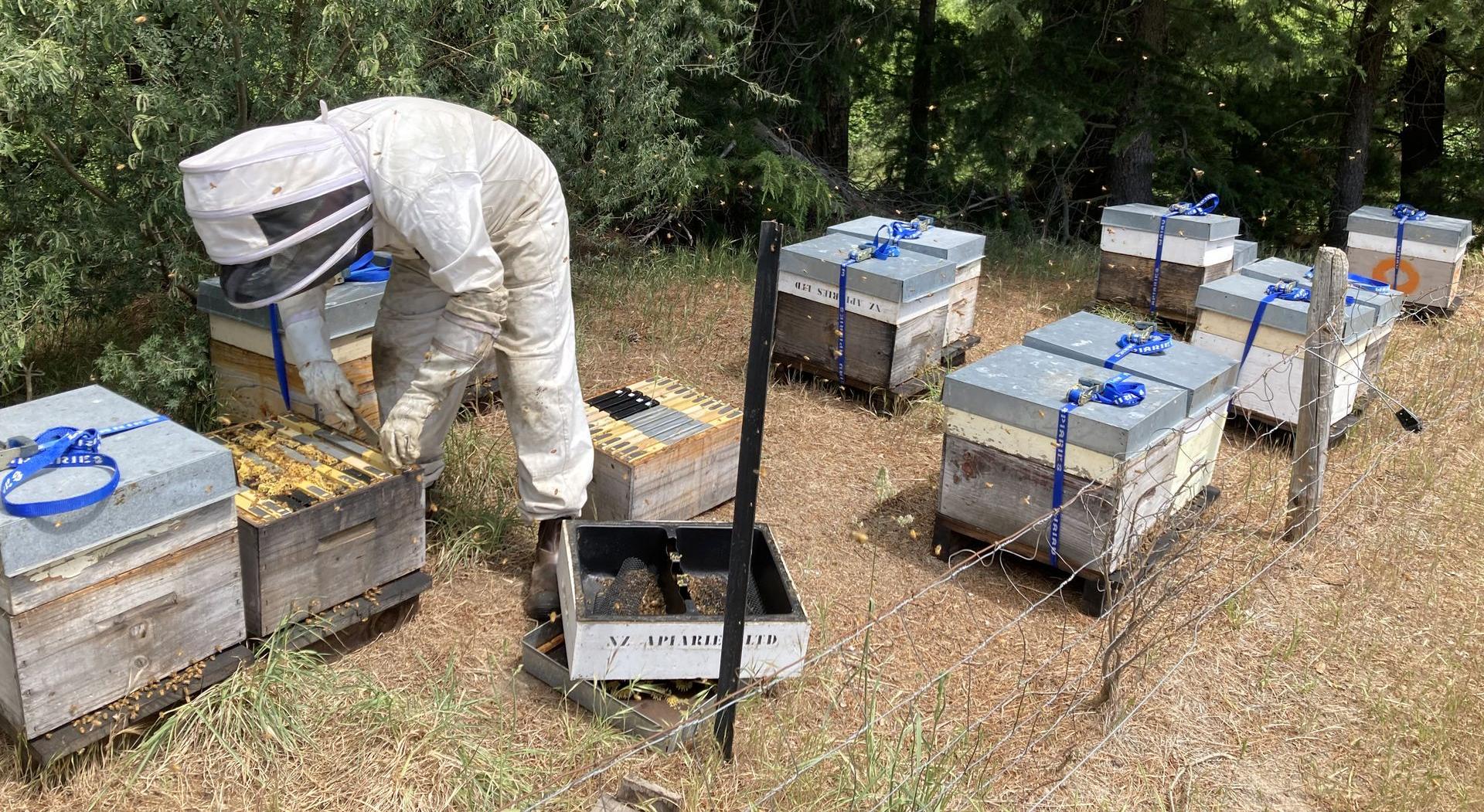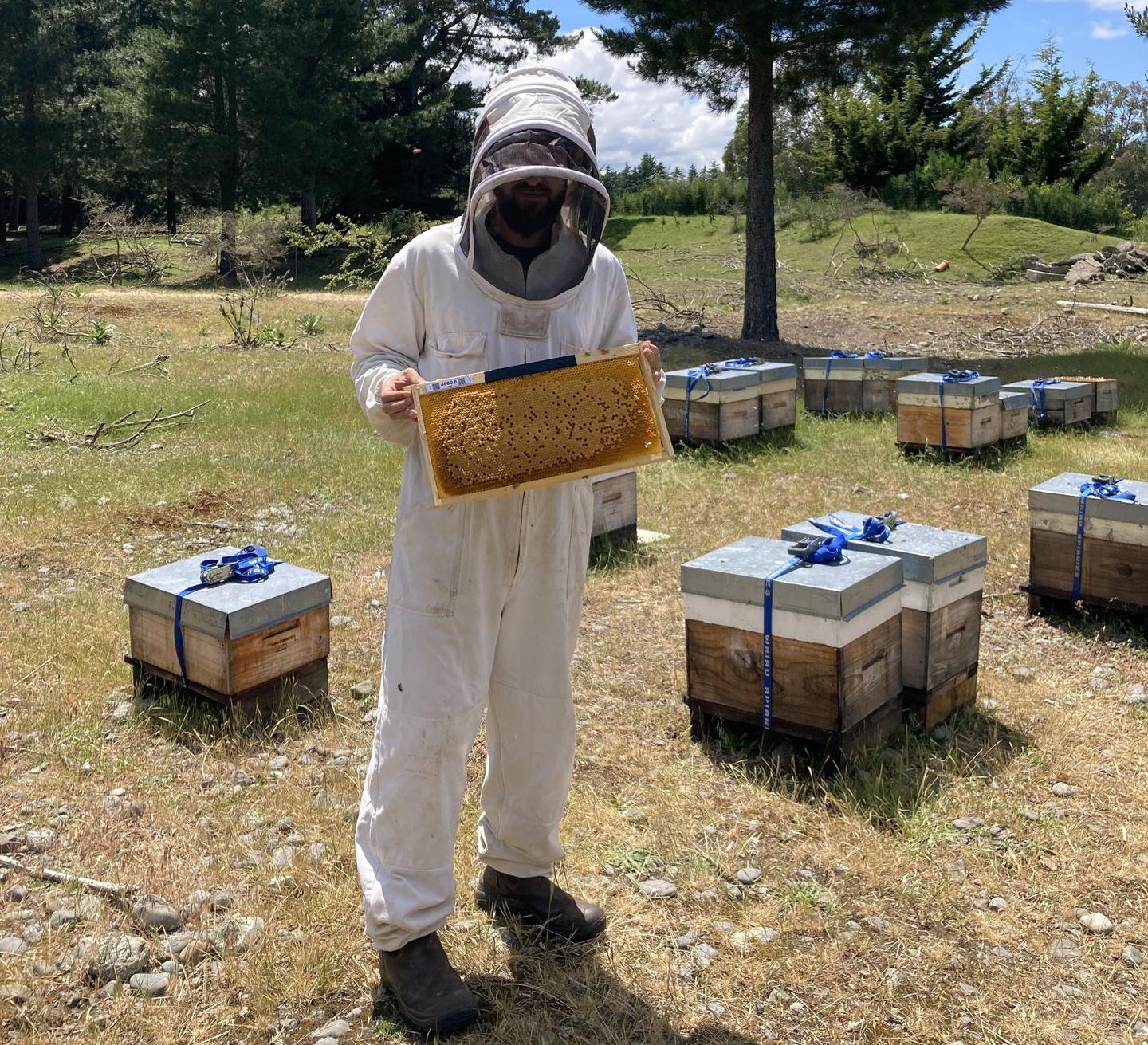New Zealand beekeepers lead the world in the adoption and innovation of apicultural practices and technology. Producing high quality honeys such as Rata or Manuka, in often hard to access locations, a reliable and automated Varroa treatment has received a lot of interest. And since residues in honey pose a problem for export markets, the move away from synthetic miticides is popular for many in the region.
For this reason, Vatorex has teamed with Waiau Apiaries to conduct a mid-scale trial consisting of 90 Vatorex hives, spread over 6 apiaries. This trial program represents the first time Vatorex hives have been managed by a third-party commercial operation, and is an important step toward the large scale Canadian trials commencing in April 2024.
Setting up
Earlier in the season, a total of 600 Vatorex heatable frames had been delivered to Waiau, a town 120 km North of Christchurch, to be drawn out with brood. The new frames follow a more stable and convenient design than previous generations and include a plastic foundation with heating coil embedded, plus an aluminium mat for improved heat distribution. To assist the building process, our team on the ground obtained 90 nucs, introduced the Vatorex frames and nurtured them.
Within 6 weeks, the brood frames had been successfully drawn out. The frames were then introduced to the new generation of Vatorex hive bodies. These hive bodies include the electronics to run fully automated treatments, secure latches to ensure stable connections, and a power management system complete with battery and solar panel. Vatorex CEO Pascal Brunner touched down in New Zealand in early November, to assist with this stage of the project.
Meeting with New Zeeland’s Beekeeping industry leaders
Pascal also took the opportunity to meet with commercial beekeepers and associations around the country, including the Dunedin Beekeepers Club, Otaki Buzz Club and Waikato Domestic Beekeepers Association. A huge thank you goes out to everyone who took the time to speak with him. He was also able to connect with other leading voices in the NZ beekeeping industry, such as Plant & Food Research, and Patrick Dawkins from the Apiarist’s Advocate.
A fun moment happened on one of the farms, when a large swarm who had previously gathered in a tree nearby set off. Furtunately, the bees found a new home in a brood box which was quickly placed in the backyard of the beekeeping operation next to the tree.
Making our hives smarter
While these trials are a big step forward in product and operational maturity, it has also given us the opportunity to further develop our brood detection algorithm. This involves monitoring brood development over the next season and systematically categorizing and recording changes on each frame. This rich data will then be used in improving our brood detection algorithm - a key element to treat an individual frame only once it contains a majority of capped brood, to increase the killing efficacy against the mites.
In New Zealand we have found a natural fit for the goals we are aiming to achieve and the beekeepers we are seeking to help. As a company it also allows us to develop in both Northern and Southern hemispheres, so commercial growth and research activities are not stifled by the cyclical beekeeping calendar. If our first experience in the `Land of the long white cloud` is anything to go by, we are incredibly excited by the prospect of a future in such a wonderful country.

